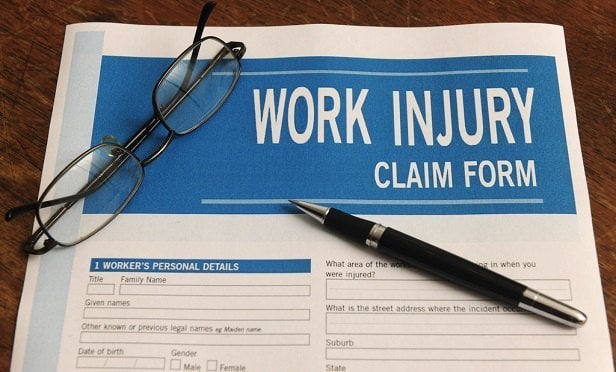 nearly one infive employers with an HDHP report an increase in illegitimateworkers' comp claims since 2017—almost three times as many as thosewithout an HDHP. (Photo: Shutterstock)
nearly one infive employers with an HDHP report an increase in illegitimateworkers' comp claims since 2017—almost three times as many as thosewithout an HDHP. (Photo: Shutterstock)
Employers that offer accident or short-term disability insurance to theirworkers might derive another benefit: a drop in fraudulent workers'comp claims on injuries actually sustained outside the job becauseemployees couldn't afford the out-of-pocket costs, according toGuardian Life's report, "Risk Redirect: Using Group Accident and DisabilityInsurance to Reduce Illegitimate Workers' CompensationClaims."
|Nearly half (46 percent) of the 1,500 employee benefitsdecision-makers surveyed by Guardian report a decline in workers'compensation claims after offering accident or short termdisability insurance. More and more employers are offering accidentand/or disability insurance plans to help offset out-of-pocketcosts and bridge gaps in high-deductible health plans – which alsocan deter workers from reporting an off-the-job injury as aworkers' comp claim in order to avoid paying for hospital or doctorbills, according to the report.
|Related: The aging workforce and workers'compensation
|"Employers offering high deductible health plans are more likelyto have experienced an unexpected increase in questionable workers'comp claims," Guardian writes. "They attribute at least part oftheir increase in illegitimate claims to workers misrepresentingoff-the-job injuries or illnesses as work-related."
|Indeed, nearly one in five employers with an HDHP report anincrease in illegitimate workers' comp claims since 2017—almostthree times as many as those without an HDHP, according to thereport.
|"Employers offering only high deductible medical coverage areeven more likely to report increased workers' comp abuse," Guardianwrites. "Larger organizations, which are more likely to offerHDHPs, are also more likely to report increased workers' comp abusein the past two years."
|Group accident and disability insurance plans help reducequestionable workers' compensation claims–42 percent of employersreport declines of 50 percent or more, while another 22 percentcite declines of 25 percent to 49 percent.
|The larger the employer, the more likely they are to haveexperienced a reduction in workers' comp claims after offering anaccident or STD plan. Nearly two-thirds of firms with at least1,000 employees report improved workers' comp results and fewerillegitimate claims.
|"Voluntary benefit strategies designed to improve riskmanagement are linked to better outcomes on workers' comp abuse,"Guardian writes. "Employer-funded accident and disability plans, bytheir very nature, have much higher participation thanemployee-pay-all plans; therefore, they have even greater potentialto reduce illegitimate workers' comp claims."
|Offering these plans can also help employers potentially improvethe organization's experience modification factor and workers' comppremium rate; correctly report and track group medical plan claims;spend less time on worker's comp claims investigation; andpotentially increase bottom-line profit.
|Accident and disability plans can also improve workforce healthand productivity by encouraging employees to seek more appropriateand timely treatment, and by reducing absenteeism. Moreover, suchplans can also reduce employee financial stress and anxiety byproviding coverage to fill gaps in the existing benefits package,especially for the most "financially fragile employees"–those withlower income, high-deductible health plans or no disabilityinsurance.
|The plans can also improve employee appreciation of theirbenefits package and aid retention, according to the report.
|Related:
Complete your profile to continue reading and get FREE access to BenefitsPRO, part of your ALM digital membership.
Your access to unlimited BenefitsPRO content isn’t changing.
Once you are an ALM digital member, you’ll receive:
- Critical BenefitsPRO information including cutting edge post-reform success strategies, access to educational webcasts and videos, resources from industry leaders, and informative Newsletters.
- Exclusive discounts on ALM, BenefitsPRO magazine and BenefitsPRO.com events
- Access to other award-winning ALM websites including ThinkAdvisor.com and Law.com
Already have an account? Sign In
© 2024 ALM Global, LLC, All Rights Reserved. Request academic re-use from www.copyright.com. All other uses, submit a request to [email protected]. For more information visit Asset & Logo Licensing.








